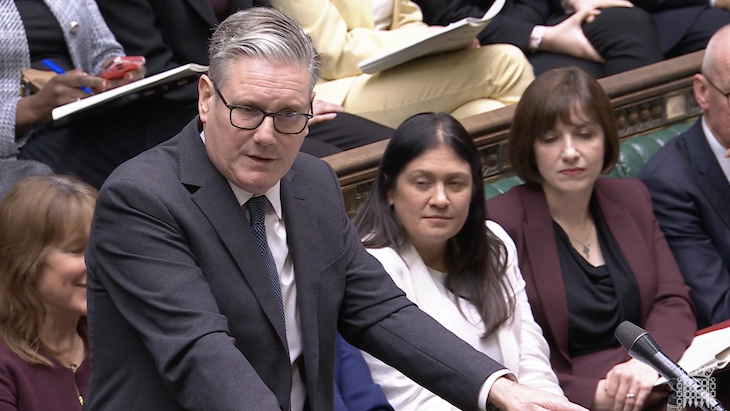Fertility rates in Britain are in freefall. The average number of children per woman is now 1.44, the lowest in recorded history. Among millennials, childlessness at 30 is no longer unusual but expected: half of UK women born in 1990 were still childless by that age, twice the rate of their mothers. Many couples will eventually have children, but later and fewer. We’re heading for a future without enough young people; a slow-motion societal collapse triggered by labour shortages, economic stagnation, declining public services and social isolation. It is a gloomy prospect, but a realistic one.
Children blow your old life to pieces. Your weekends are no longer yours. But when I think back to my pre-child life, it was, though easy, curiously hollow
We’re told this fertility crisis is due to the economy, high housing costs, climate change anxiety, or the lack of affordable childcare. Yes, these are all real pressures. But in many cases, these are rationalisations, not root causes. The truth is more uncomfortable: a great many modern, liberal people simply don’t want the hassle, at least not yet, of having kids – and for some, not ever. Parenthood is postponed to some future version of themselves who will be ready to give up their weekends and holidays. That day often never comes.
They want to travel, eat out, play sport, spend lazy weekends in bed, go to the pub, climb mountains, or play video games. In short, they want to ‘have a life’. And they don’t want to give it up. Because parenting isn’t glamorous. It means feeding, bathing, cleaning, consoling, dressing, disciplining and entertaining small humans. It’s often repetitive, frequently exhausting, and occasionally mind-numbing. It’s certainly not hiking the Inca Trail.
Many millennials, and I suspect even more Gen Z, keep postponing the plunge. Why bother now? In a culture that prioritises individual happiness over everything else, having children, especially early, seems like a strange and irrational decision. They’ll do it later, they say. Except later is a shrinking window, and biology is not a patient negotiator.
It’s not that children are taboo, far from it. It’s just that they’re now framed as a lifestyle choice, one of many. It’s like deciding whether to move to the countryside, go vegan, or switch from Android to iPhone. Unlike a phone or a new diet, as the lovely midwives at East Surrey Hospital reminded me when my first child was born, there is no returns policy. Furthermore, delay too long, and sometimes the choice is made for you.
Seen through a purely individualistic lens, having children makes no sense. It’s financially ruinous. It wrecks your social life, your sleep, your hobbies, your diet, your holidays and, depending on how involved you are, your career. It is a commitment without a clear endpoint, and no guarantees of gratitude. If you want something to love that’s lower maintenance, shorter-lived, and reliably affectionate, get a dog.
And yet. As a millennial father of two, I’ve come to believe the entire framework is wrong. The fundamental error isn’t economic or biological, it’s philosophical.
Children aren’t a product or an upgrade. They’re not a ‘next step’ or a lifestyle enhancement. They are, quite simply, a central part of what it means to be human. This is why infertility can feel so devastating, because the absence is not superficial but existential.
Of course, not everyone is able to have children, and meaning can be found in other ways. But to stick my head above the parapet: for the overwhelming majority of people, there is nothing else that comes close.
Choosing to delay children indefinitely, by waiting for the ‘perfect time’ that never arrives, is choosing to forgo one of life’s deepest and most transformative experiences. In our secular age, the birth of a child may be the closest most people ever come to transcendence. This is not a metaphor. You and your partner create, from almost nothing, a person who is part of you, yet entirely themselves, someone who will go on to live for many decades and have their own thoughts, fears, ambitions and failures.
You will see flashes of yourself in them, but also strange newness. It is mysterious, moving, and addictive. In fact, it’s the very addiction to potential that drew me into teaching and keeps me there.
Yes, it changes everything. Children blow your old life to pieces. Your weekends are no longer yours. You can’t just opt out. It’s messy, tiring, and often infuriating. But when I think back to my pre-child life, it was, though easy, curiously hollow. I had time, yes. I had sleep. But there was a quiet pointlessness hanging over everything. That sense of drifting, of self-indulgent angst, never quite went away.
Children do away with that. Because they force you to stop living as if you’re the main character. They demand your attention not because they’re needy, but because they are truly vulnerable. They matter more than you do. In recognising that, you discover a purpose deeper than comfort or choice.
A life lived solely for the pursuit of your own happiness is, ultimately, a small life. It is finite, fragile, and fading. Children are the opposite. They extend you beyond yourself. They don’t just give you purpose; they make you necessary.
There are practical reasons for having children. Civilisation needs them. Quite literally: someone has to pay your pension. But even more importantly, children make the world beautiful again. Their curiosity renews it. Their delight reframes it. They ask questions you forgot to ask. They remind you why the world is worth caring about.
So don’t wait for the perfect moment. Don’t delay because you want one more summer of travel, or one more holiday without a pram. Don’t wait until ‘life is sorted’, it never is. Have children because they will shatter your self-absorption, and because, as C.S. Lewis once said, raising them isn’t a distraction from life’s work. It is the most important work.







Comments